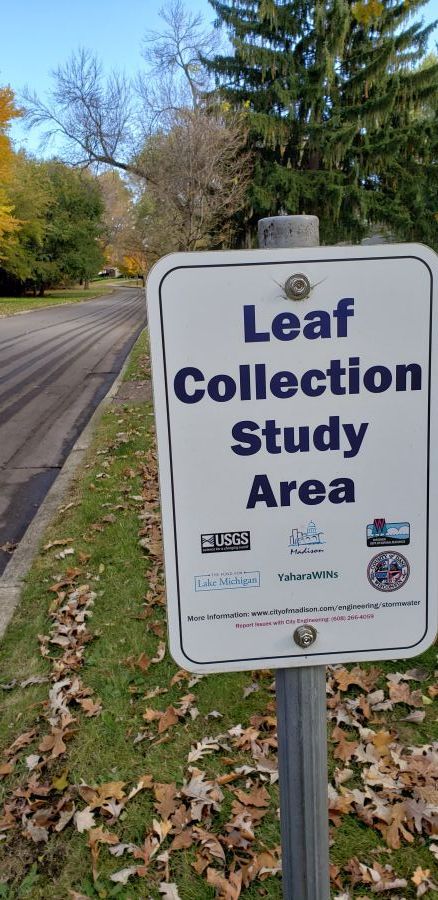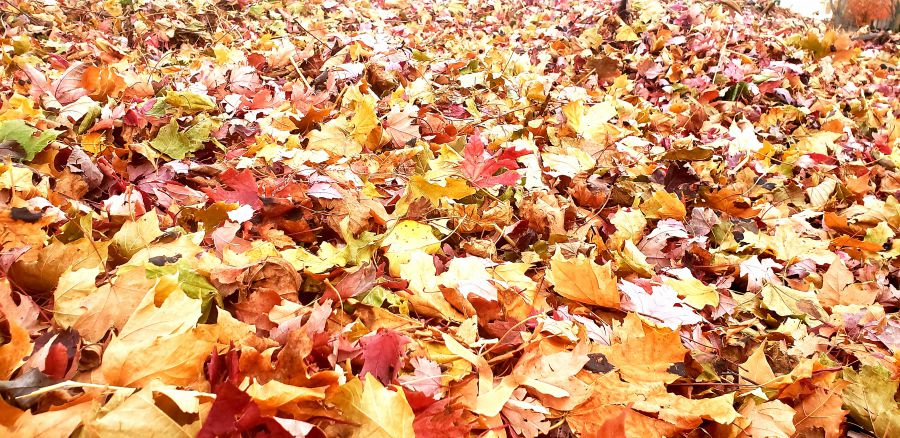Leaf Collection Program Study
The City of Madison has partnered with the USGS to analyze how leaf collection impacts water quality. Over the last nine years, we have learned a lot about how leaves impact our water and ways that both city crews and residents can reduce the risk of leaves to our lakes. At a very basic level we have learned the following:
 Fall accounts for over half of the phosphorus leaving a neighborhood. Phosphorus is the main nutrient controlling algae growth in our lakes.
Fall accounts for over half of the phosphorus leaving a neighborhood. Phosphorus is the main nutrient controlling algae growth in our lakes.- When leaves get rained on, the phosphorus in them is dissolved and sent to the lakes. Think of leaves in the street as a tea bag. Watch our "Leaf Tea" demonstration.
- Dissolved phosphorus is difficult to capture once released.
- Leaves that are on the road pose the biggest impact. Leaves on lawns and the terrace have a minimal impact.
- Our current collection technique reduces fall phosphorus by 40 percent. Our current technique includes: leaves pushed from the terrace into the street, hauled to the composting facility, and a street sweeper follows closely after.
- Removing all of the leaves before every rain storm in the fall resulted in an 80 percent reduction in fall phosphorus, according to our study.
- The study was compelling enough to change the way the WDNR evaluates a community's leaf management. A technical guidance document was created.
- Resident actions have a big impact how leaves effect our lakes
- Mulching of leaves in place is a triple win.
- Raking leaves from streets before rain in key. Sign up for text alert reminders to remove leaves.
- Parking adjustments may speed up removal.
- Changes in leaf management may be the most cost effective way for urban areas to reduce phosphorus going to lakes and streams.
Current Study
The City of Madison is currently a study partner with the USGS and the Wisconsin League of Municipalities to evaluate two additional collection scenarios and show the impact of detention basins on phosphorus under each scenario. Two drainage areas near the Cherokee Marsh Southern Unit are currently being monitored. The study's goal is to quantify the water quality improvement as an additional street sweeper collects leaves off the street in between full scale leaf collection. Preliminary observations are promising.
Past Studies and Presentations

